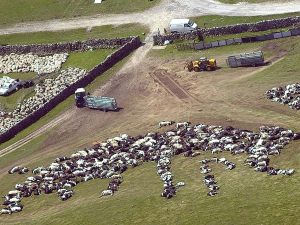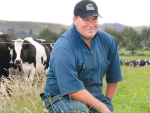Foot and Mouth Disease outbreaks could have a detrimental impact on any country's rural sector, as seen in the United Kingdom's 2000 outbreak that saw the compulsory slaughter of over six million animals.
Closer to home, the disease is widespread in parts of Indonesia.
International collaboration between US company Tibia BioTech and the New South Wales (NSW) government means Australia is poised to begin producing the first mRNA vaccine against FMD domestically, aimed at keeping the country safe from the ravages of an outbreak.
The vaccine, successfully tested at the German Friedrich-Loeffler-Institut (FLI) in large animals, also offers short production timeframes, meaning response time to outbreaks is slashed.
Traditional FMD vaccines involve using large quantities of the virus cultivated under strict safety conditions, whereas mRNA vaccines can be produced without this process. The mRNA vaccine is fully synthetic and said to be safer and much faster to produce without the need to use infectious material. According to FLI, mRNA vaccines can be produced without any special biosafety requirements.
The vaccine was developed by Tiba scientists as part of an international research collaboration with the Elizabeth Macarthur Agricultural Institute and the RNA Institute at the University of New South Wales, with support from the NSW Department of Primary Industries and Regional Development and Meat & Livestock Australia.
This success builds on earlier livestock vaccine research supported by the Bill and Melinda Gates Foundation and Canada's International Development Research Centre.
"With this new development, Australia is now one of only a small number of countries with local capacity to produce a foot and mouth disease (FMD) vaccine," said Tara Moriarty, Minister for Agriculture, Regional and Western NSW.
"Developing local manufacturing capacity to produce vaccines against emergency animal diseases is a critical priority so we can protect Australia's livestock industries, our economy and our food supply.
To vaccinate vulnerable cattle, it has been suggested it might require up to one million doses in a region, so currently there is a need to scale up the vaccine and accelerate its journey from the lab to local mass scale production. However, before it can be made available and scaled for markets, the vaccine needs to show that it meets Australian Pesticides and Veterinary Medicines Authority standards.
The FLI has said that studies are also needed to determine whether adequate protection can be achieved with a single dose of the vaccine, and how quickly that protection develops after vaccination. Further information notes that the vaccine can be stored long-term at standard refrigeration temperatures, or at room temperature for at least 1 month - a critical advantage in livestock applications.
Although Australia has been FMD-free since 1872, the Australian Bureau of Agricultural and Resource Economics and Sciences estimates the impact of a widespread incursion of FMD could cost AU$80 billion to Australia's livestock industry over a 10-year period. Australia's national science agency CSIRO says the disease is still considered the most serious biosecurity threat to Australia's livestock industries.


















